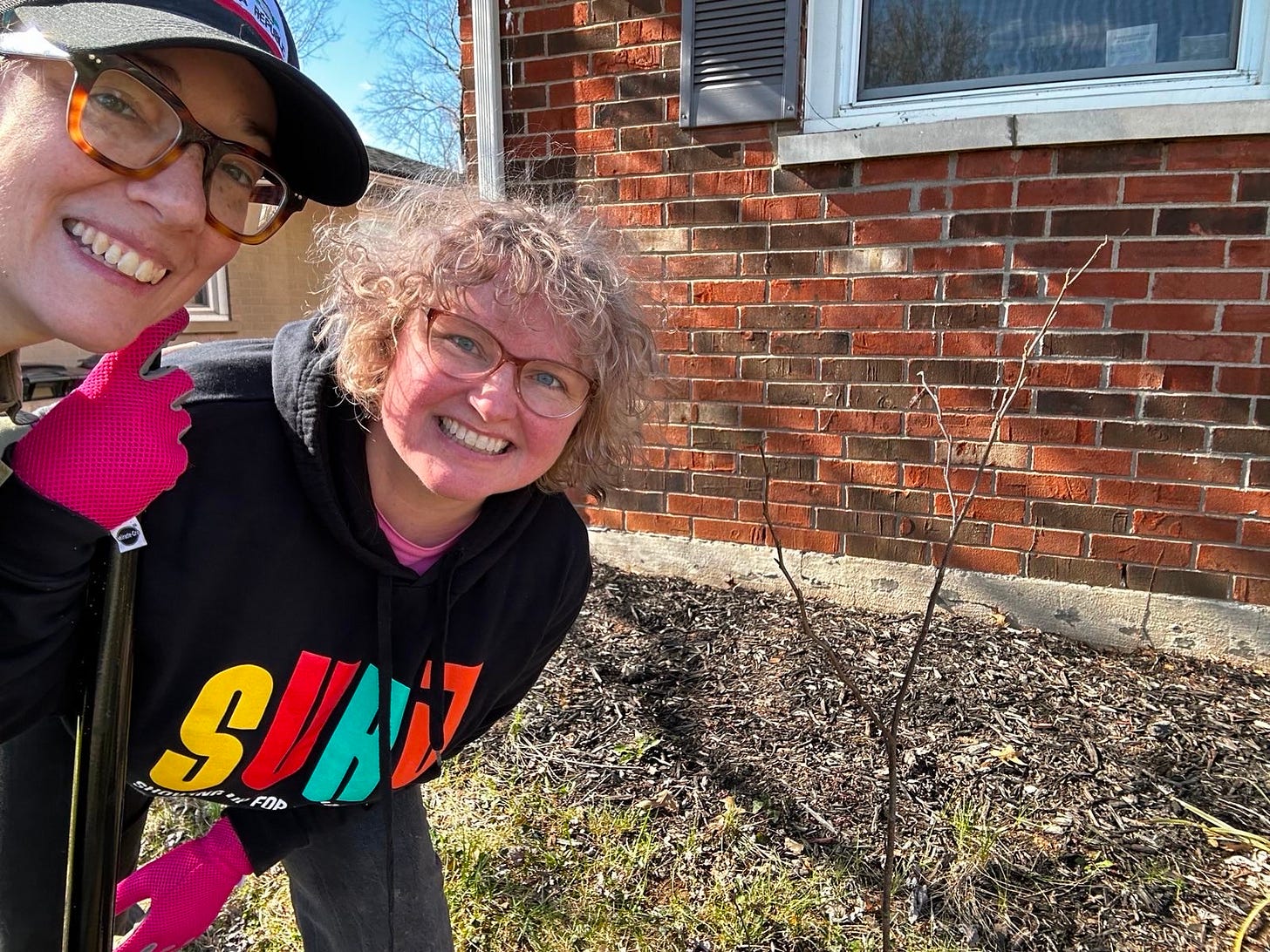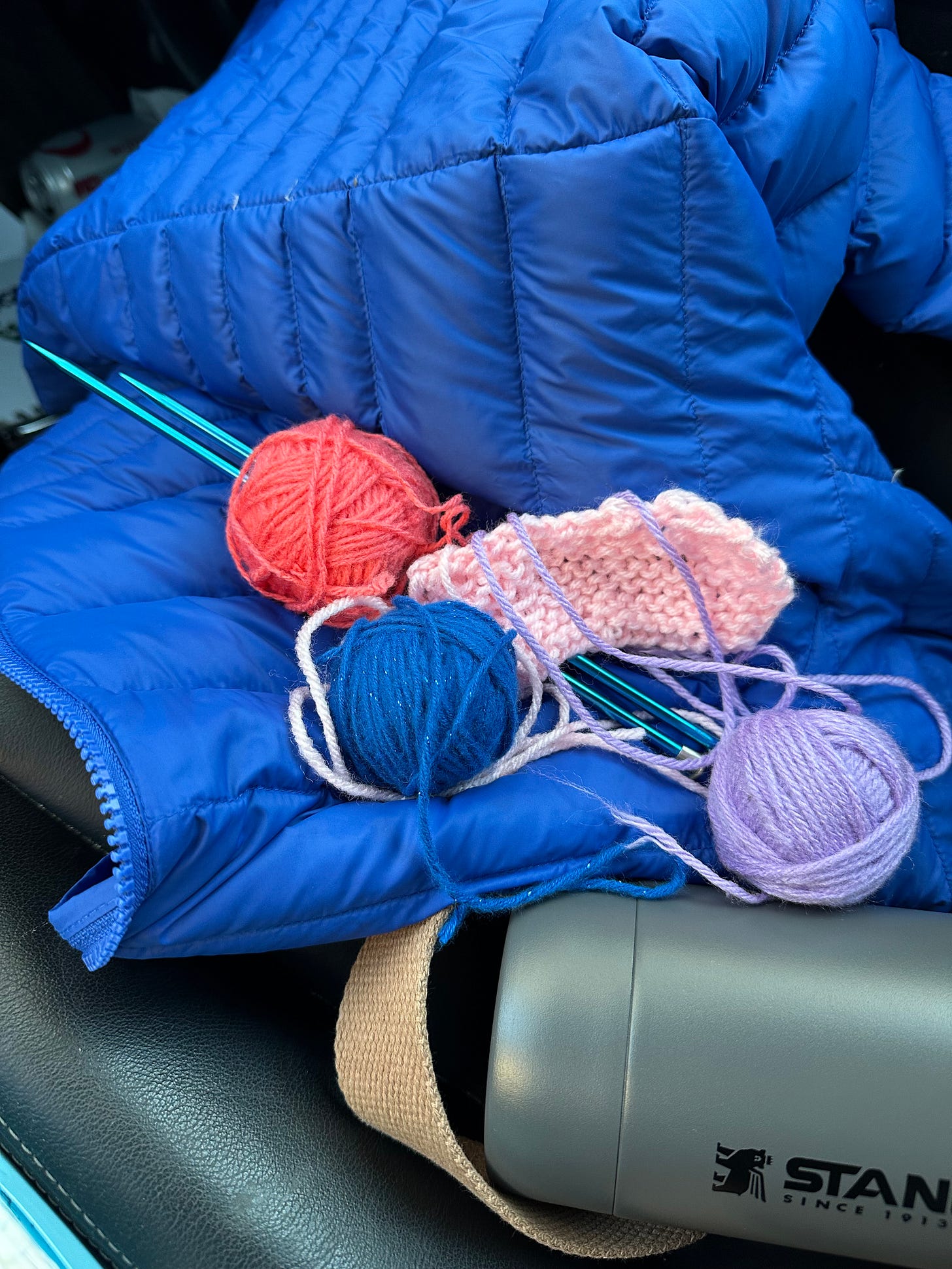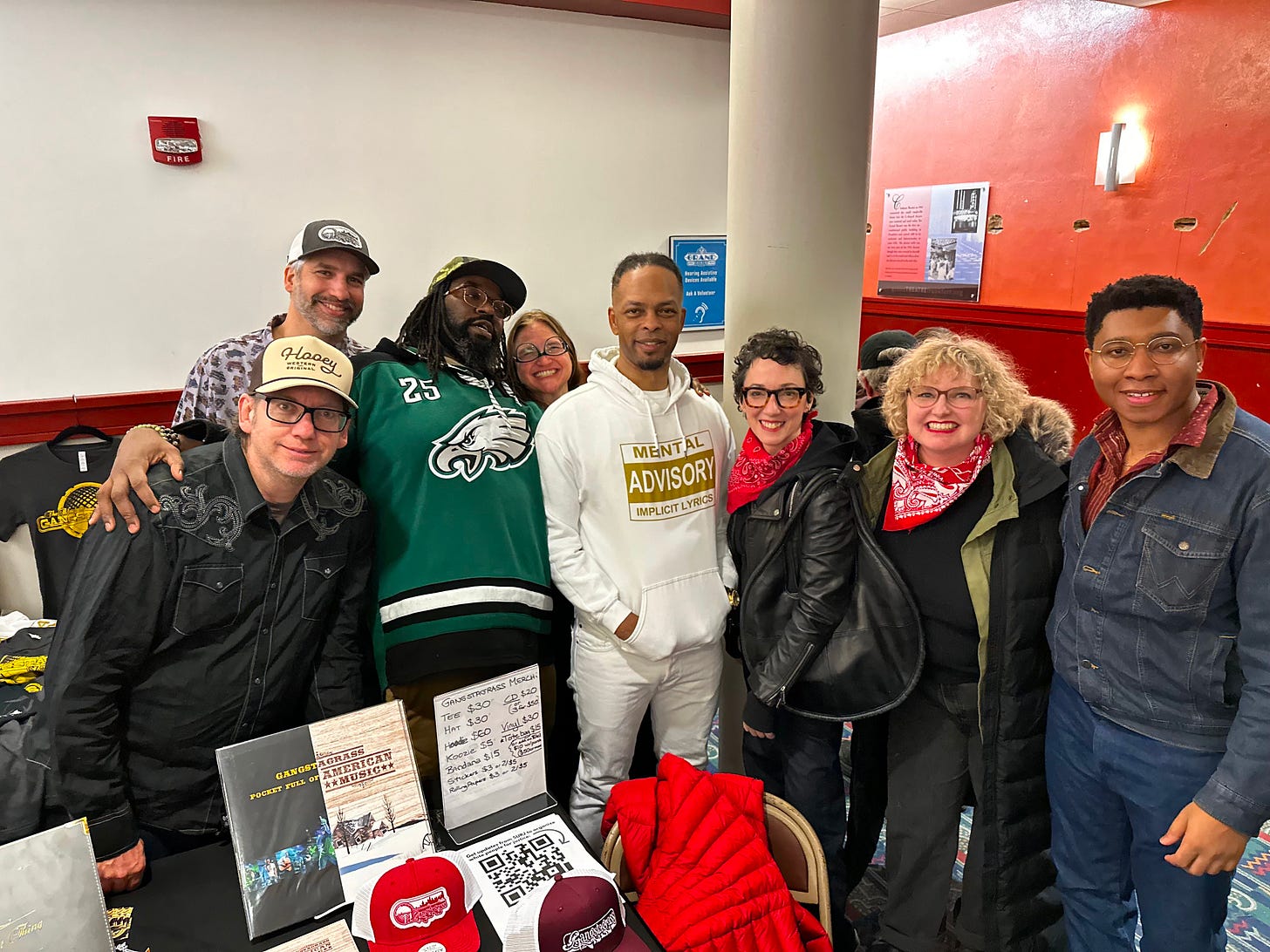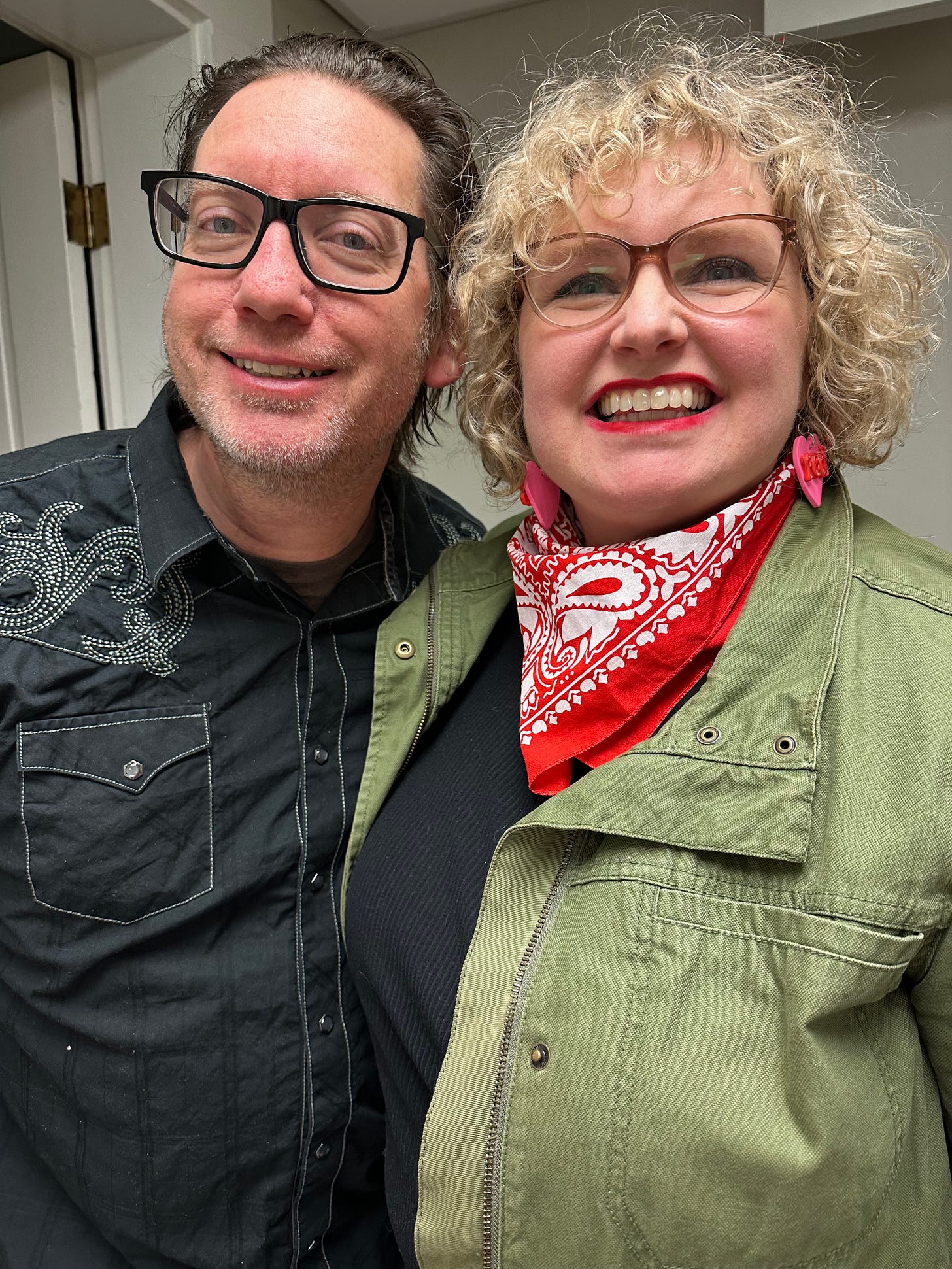Working Class Love Notes #10: Community
Some notes on finding your people and mending our hearts, plus so many things I love

"Well, first you talk to one person, then you talk to another person, then you talk to another person."— Cesar Chavez, co-founder of the National Farmworkers Association, labor organizer, and civil rights activist
“What the hands do, the heart learns.” a guiding principle of Movement Generation
Dear friends,
Whew, I’m struggling, y’all. Are you in it, too?
For the past month, I’ve been so tired, burned out, and scared. It’s been hard to find the energy to write to y’all while also finishing my manuscript, working, and keeping up with personal life responsibilities, so thank you for your patience, but I think y’all get it.
Our future is uncertain, but all signs indicate that it will continue to get worse before it gets better, especially as we’re hearing credible rumors of forthcoming executive orders attacking non-profit status. There’s so many great articles, so much research, and brilliant people talking about this and the larger political analysis and strategies, people like Kelly Hayes, JP Hill, John Russell at More Perfect Union, Kim Kelly, and Rebecca Solnit who I totally recommend you follow. This month, for my contribution, I’m going to write about one of the antidotes, the thing really getting me through: community.
I’ve been organizing for eighteen years now. One of the top priorities in organizing is building, cultivating, and keeping relationships. Relationships are important for power building because this work is relational. We grow our numbers by being in relationship together, getting bigger by making new relationships each day, nurturing those relationships so they grow deeper in trust, and as much as we possibly can, holding onto and repairing relationships so they last over the course of time and can weather the inevitable hardships and conflict in life and organizing.
Community is an antidote because it helps us build political power which can win systemic changes and gives us physical and psychological safety, but also community is a place where we can laugh, learn new things, talk about what’s real, create art together, encourage one another, share our dreams, and have fun, even rest together, all of which are critical to our getting through the difficulties we’re facing and staking a claim for the future we want, one that’s still possible. So, here are some ways we’re growing and nurturing community here in Kentucky in case you find them helpful.
What the hands do, the heart learns.
After the election last Fall, my friend Sara told me she was interested in starting a mending circle, a place for women, queer folks, and our allies who really mean it, to come together to mend whatever needs mending, whether that’s clothes, broken items, or our hearts. It’s also a place to learn to mend, to learn to knit, sew, repair things instead of buying something new on impulse. It’s a place to have conversation and share what’s on our minds, to share what’s hard, to celebrate what’s exciting.
I said yes, and so did a lot of others, so we’ve been meeting once a month since the beginning of the year.
Her theory is a political one, one she learned from a powerful organization called Movement Generation: What the hands do, the heart learns. We aren’t just mending because my coat had a tear in the lining (which it did), but through the act of repairing something, we are practicing how to mend relationships, how to learn something new together, how to accompany someone when they don’t know what to do next or when something falls apart.
At a recent circle, my friend taught me to mend my coat. She and I sat side-by-side, her teaching me how to stitch it up, cheering me on and coaching me when I got stuck. But, we weren’t just repairing my coat, I was learning how to do something new that I wasn’t good at, and I didn’t have to do it alone.
We were re-connecting after a few years of not seeing each other often, laughing and catching up, while we stitched. With her help, I was making a decision about where my money goes by mending my coat, one that I loved that I got on my honeymoon, instead of throwing it out and pressing “buy now”, spending money at a corporation I hate on something I liked less, likely made in a sweat shop, because it was more convenient than repairing it.
Through mending circle, we are learning how to change and reimagine the broken system we live in so we can work towards a new way of living and being together, like dreaming up worker cooperatives. New groups within the original circle have formed, too, like a crew focused on community defense and survival strategies. We’re scheduling work parties to help each other make home repairs, work on landscaping projects, or planting gardens which is how Sara helped me plant my first tree (pictured above). We’re also communicating in real-time about weather emergencies. A group of us were on a Signal group thread together a few weeks ago while we were taking shelter in our homes during a tornado warning, people across our community chiming in on our thread letting each other know we were safe, knowing that if anyone wasn’t, we’d all be there to help them.
(Note: Movement Generation now says What We Feed Grows as a way to acknowledge ableism and not exclude people who cannot use their hands. See their first principle in their Just Transition framework here.)
Next Step: Can you start a Signal thread, maybe even a text with one other person to start out, to begin knitting together a network of people in your life who want to help one another out? People who might want to mend something? Or grow something? Or just hang out?
Who are your people? Find them.
In Appalachia, when we meet one another, we often ask: Who are your people? It’s a way for us to understand how/if we’re connected, who your family is or where you’re from, what you’re made of, but it’s also a way we understand ourselves and where, and to whom, we belong. One of the most important things in building community is to know who your people are and build with them, your chosen family, your political home, and/or your family of origin if its right for you.
My people are largely working class Appalachians, rural folks, Kentuckians, and people who hold a vision of a world much different than the one we’re in now, one in which regular people have agency over our lives and the wealth we create stays with us and is not hoarded by a handful of billionaires. My people are those who want a world where we care for each other and all beings, including our planet, and everyone is accepted, welcomed, and protected no matter who they are or where they come from.
We can also have a political home, a group where we take political action together, organize, build a community defense group, a community garden, and/or a mutual aid network together, where we learn to govern ourselves and make decisions together. My political homes are Showing Up for Racial Justice (SURJ) and Kentucky Peoples Union (KPU). Do you have one? If not, it’s a great time to find one!
But to get even more niche, my people are obviously my dear friends and family, but also my people are readers and writers (Scrappalachia Write Club), people who love to nerd out about folklore, dreams, divination, and the seasons (you know who you are and who you are). My people are the crew I get physically and mentally strong with twice a week in group strength training classes (This Gym 4-Ever: Lexington get in here!), and those folks out there in recovery programs. My people are into learning new-to-me granny skills with me like knitting and gardening. My people are country music lovers, Appalachia enthusiasts, movement history nerds, and David Lynch fans. My people are my pets, my rescue dogs and cats, too.
If you already have your people, hold them close and visit often. Pick up the phone and talk. If you have let some relationships lapse, now’s the time to reignite them. Holding onto grudges? (I would NEVER), maybe it’s the time to let some of them go? Or at least learn to tolerate each other? Maybe time can heal it? Or at least make us less annoying?
If you’re craving more people, how can you find them? Join a local organizing campaign or group, volunteer, check out reading groups or seek out local classes. Look online — there’s so many great online communities and campaigns that can become your people, too. Some of my people live all across the country and we gather on zoom, but have become chosen family.
Next Step: Take one action to find or re-connect with your people. Text, call, or visit that person you keep meaning to. Go to a local organizing meeting, a rally, or volunteer somewhere. Take a class and learn something new.

One-on-Ones: An Intentional Conversation to Get More Powerful Together!
Community is built one conversation at a time. A critical organizing tool is the one-on-one conversation. It’s a conversation with another person who you want to build a trusting relationship with so that, as my friend Stephen Smith at WV Can’t Wait says, you can be more powerful together.
There’s a lot of good methodology and training out there about doing effective organizing one-on-ones, but for now, let’s keep it simple. A one-on-one is a conversation with a purpose. It’s a chance to meet up with someone and talk about what you collectively want for your people and place, to share the things that light you up and interest you, to conspire about things you want to change, and to relate around the values you share (or find out if you don’t share values). It’s a place to better understand yourself and the other person by discussing what experiences and people made you who you are and see if this is a relationship you want to grow.
If you’re trying to build a crew of people to politically roll with, like the Cesar Chavez quote above says, it’s all of these one-on-one conversations that build an organizing group. First one, then another, then another. They might be people we’ve known for years, but we haven’t had this kind of intentional conversation with them before. It’s amazing what you will learn about each other if you do.
Some tips:
Practice listening. No matter what, listen and be present opposed to just waiting on the next opening when you can say something. This isn’t the way we’re normally in conversation so a great way to be more intentional is to take turns being the person asking questions and the person sharing. If you’re guiding the conversation, you talk 25% of the time and the person you’ve asked to do the one-on-one with talks 75% of the time. Then switch roles. It can feel strange to be formal like this at first, but I promise it pays off!
Ask open ended questions that get to the heart of things. You can start out talking about the weather, but let’s talk about things deeper than that, too. It’s these deeper conversations that build trust and feel like a gift to everyone involved.
Some of my favorite questions to ask in a one-on-one are:
What do you love about living here?
What makes you angry?
If you could change something about our community, what would it be?
What lights you up and gives you joy?
What worries keep you up at night?
What is your vision for our community/campaign/project/life? Why do you want that?
What’s a next step we could take together to get closer to what you/we want?
Be a person of integrity. Trust is everything. Keep the conversation confidential unless you have permission to share what was said. Honor what you are told and hold it close with care. Keep your word and follow-thru OR communicate when you can’t and make a new plan. This isn’t a therapy session so don’t try to give professional advice or “fix people.” Honor boundaries. Treat people the way you want to be treated. Don’t be an asshole.
Next step: Choose one person you want to get to know better, even if you already have a relationship, and have a one-on-one conversation with them!
That’s what I’ve got for now, friends. I wish you all the best in your community building and I’m sending love and care to all of you.
Love, Beth
Y’all got your ears on? I’ve been on some podcasts.
I got the opportunity to talk with some incredible people about rural organizing, Anne Braden, and Rednecks for Black Lives on these podcasts. I hope you enjoy them and share!
Rural America Fights the Right: An episode of Convergence’s Block and Build podcast with my colleague Stephen Smith talking about rural organizing and the Rural Defenders Union (a follow-up conversation based on our Convergence article From Rural America With Love: An Invitation to Bravery)
Anne Braden: My Kind of Southern Woman on the Mountain Laurels podcast (I’m so obsessed with this podcast!)
I’m also on The Valley Labor Report talking with some fellow Southerners about Rednecks for Black Lives and rural organizing
A new anthology edited by friend Rae Garringer of Country Queers titled To Belong Here: A New Generation of Queer, Trans, and Two-Spirit Appalachian Writers. Gorgeous gorgeous gorgeous.
One of my favorite working class fighters Kim Kelly writing about Coal Miners’ Unions fighting back against Trump for In These Times. “The Trump administration’s feckless business-first, workers-last approach is leaving the nation’s coal miners to die—and now their unions are taking him to court.”
Also, speaking of my beloved Kim Kelly, her new children’s book Fight to Win! Heroes of American Labor is now up for pre-order! I know what every kid in my life is getting for gifts this year. Surprise! You’re gonna love it.
Listen to one of my favorite people in the whole wide world Stacie Fugate talk about Mother Jones on the Mountain Laurels podcast. My heart!
Listen to Gangstagrass’s new album The Blackest Thing on the Menu. I got the absolute pleasure to be at their show in Frankfort, KY a few months ago and talk about Rednecks for Black Lives from the stage! Photo with the band below! If Rednecks for Black Lives was embodied in music, it would be Gangtagrass, a hip hop bluegrass working class fusion band. Listen and share with everyone you know! And, thanks for having me, y’all!
Book: You Only Get What You’re Organized to Take: Lessons from the Movement to End Poverty by Rev. Liz Theoharis and Noam Sandweiss-Back. Excited to dig in!
I’ve had this book on pre-order for months: Murder Ballads: Lyrics and Lore by Katy Horan. I am obsessed with her Literary Witches book, prints, and deck.
Speaking of witches, I really love Dr. Erica Anzalone’s classes at Witch Lit. If you are a writer and/or a reader, and love witchy spooky art, I truly recommend. I’ve taken four classes with her and loved them all.








